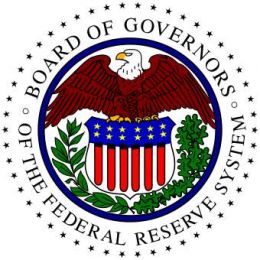A sober assessment of the U.S. economy from Federal Reserve chairman Ben Bernanke weighed on stock markets Wednesday, while oil prices jumped back above $100 a barrel after OPEC surprisingly kept its production levels unchanged.
In a speech Tuesday, Bernanke acknowledged that U.S. economic growth remained “frustratingly slow” but said nothing to suggest the Fed was about to take any bold new action to shore it up.
“Until we see a sustained period of stronger job creation, we cannot consider the recovery to be truly established,” Bernanke said.
Last week’s payrolls figures, showing only 54,000 jobs created in May and the unemployment rate back at 9.1 percent, provided the clearest evidence that the U.S. economic recovery is slowing down sharply.
That generated talk in the markets that the Fed may decide to pump more money into the U.S. economy beyond the current $600 billion program, which is due to expire at the end of this month.
Though Bernanke did not put his weight behind another round of so-called quantitative easing, or QE, some analysts think that the Fed will have no option but to back more stimulus, especially if the housing market continues to slide.
Jeremy Batstone-Carr, director of private client research at Charles Stanley, said the chances of another money injection – but of a different type – stands at 75-80 percent and that the performance of the U.S. housing market is “just as critical” as the outlook for employment.
“Before then we might expect financial market conditions to deteriorate, particularly as a sudden period of equity market weakness should be sufficient to provide Congress with the ammunition to give the Federal Reserve the go-ahead,” Batstone-Carr said.
“When QE3 happens it may not take the same form as QE2 and we expect the quadruple-dip U.S. housing market to be at the centre of an updated programme,” he added.
For now though, Bernanke’s failure to promote another monetary stimulus has hit stocks hard. After all, the massive amounts of money the Fed has pumped into the U.S. financial system have helped prop up markets over the past year or two.
In Europe, the FTSE 100 index of leading British shares was down 0.7 percent at 5,821 while Germany’s DAX fell 0.9 percent to 7,040. The CAC-40 in France was 0.7 percent lower at 3,845.
In the U.S., the Dow Jones industrial average was down 0.1 percent at 12,062 soon after the open while the broader Standard & Poor’s 500 index fell an equivalent rate to 1,283.
In the oil markets, the main point of interest was the news that OPEC unexpectedly kept its production levels unchanged.
In the run-up to the meeting, oil prices were trading lower on the expectation that OPEC would raise production to ease crude prices and help the world recovery. Oil prices have been elevated over the past few months partly on the back of concerns that the Arab uprisings, from Libya to Bahrain, may hurt production.
Marc Ostwald, market strategist at Monument Securities, said the objectors to a production increase may have had one theme in common. “They are using foreign exchange reserves from oil revenues to subsidize….food price inflation to avoid the fate of Egypt and Tunisia,” he said.
Analysts say that the high cost of life, particularly food prices, and unemployment were key drivers in the uprisings there.
Soon after OPEC’s announcement, oil prices rose sharply. Benchmark crude for July delivery was up $1.17 at $100.24 a barrel in electronic trading on the New York Mercantile Exchange. Earlier it had traded the equivalent rate lower.
The other big theme in the markets remained Europe’s debt crisis.
Last Friday’s effective decision by the European Union and the International Monetary Fund to give Greece the next euro12 billion batch of bailout funds and signals it may get a second bailout have helped ease worries that the country will default on its mountain of debts.
By mid afternoon London time, the euro was 0.5 percent lower on the day at $1.4619, shy of Tuesday’s one-month high of $1.4696.
Reports that German finance minister Wolfgang Schaeuble is backing an extension to Greece’s repayments are also prompting some interest in the markets, ahead of Thursday’s interest rate decision from the European Central Bank.
The monthly press briefing from ECB president Jean-Claude Trichet following the expected decision to keep the benchmark rate unchanged at 1.25 percent will likely be dominated by Europe’s debt crisis and investors will be interested to hear what he says about Schaeuble’s proposal.
Earlier in Asia, Japan’s Nikkei 225 index edged up less than 0.1 percent up to close at 9,449.46 but Hong Kong’s Hang Seng fell 1.1 percent to 22,622.65.
Mainland Chinese shares advanced, with the benchmark Shanghai Composite Index up 0.2 percent to 2,750.29 and the Shenzhen Composite Index rising 0.3 percent to 1,136.53.









